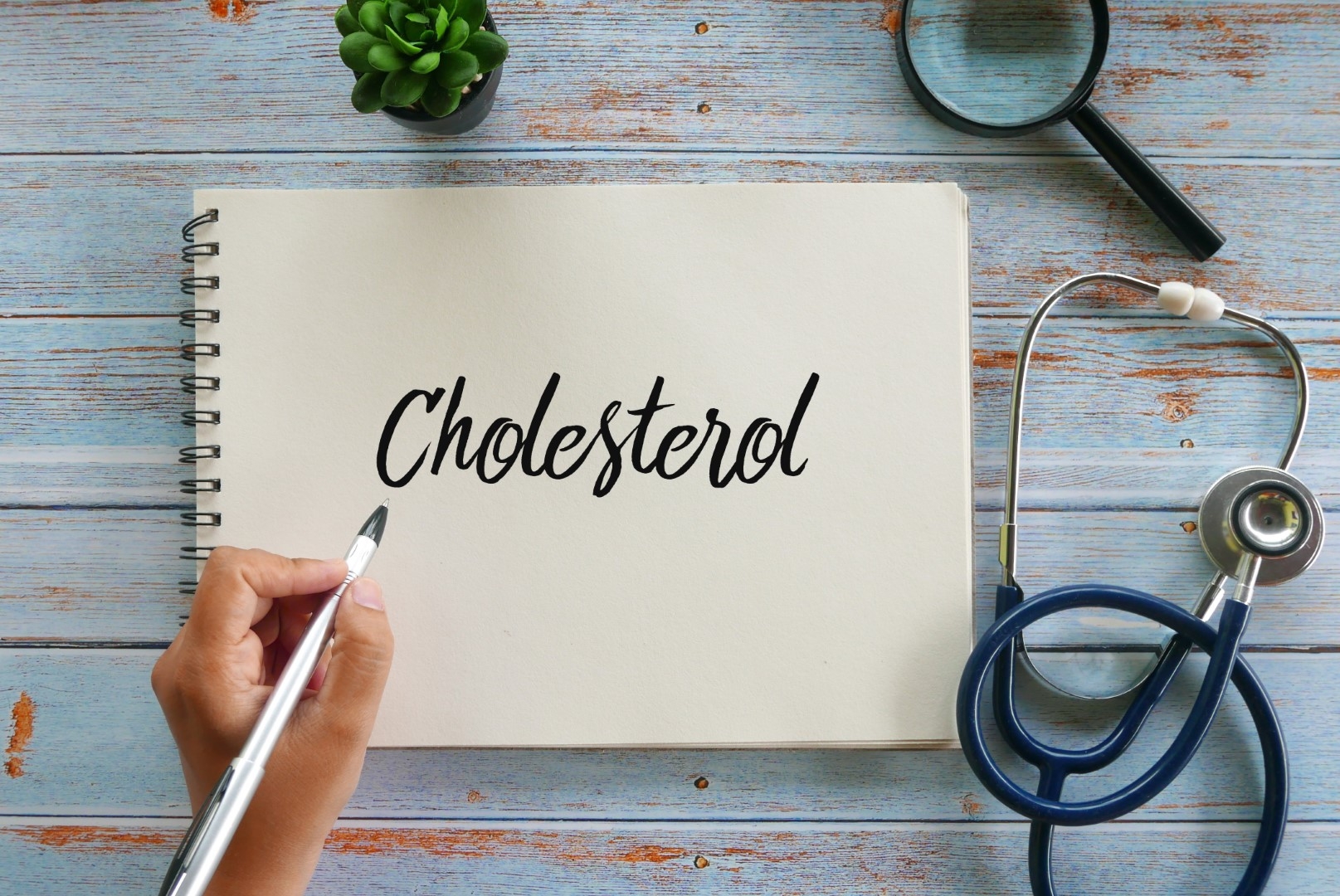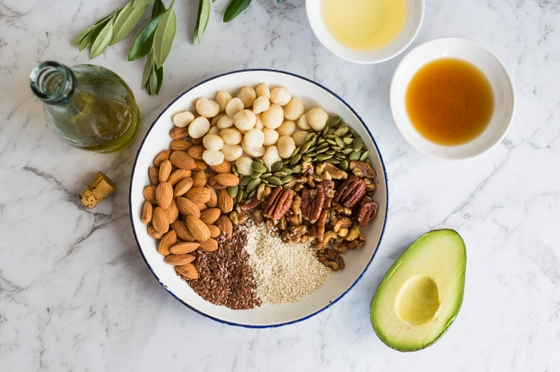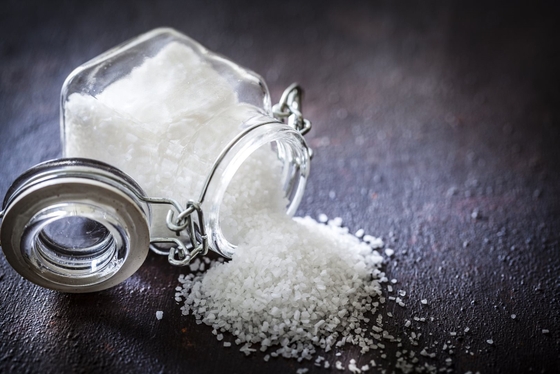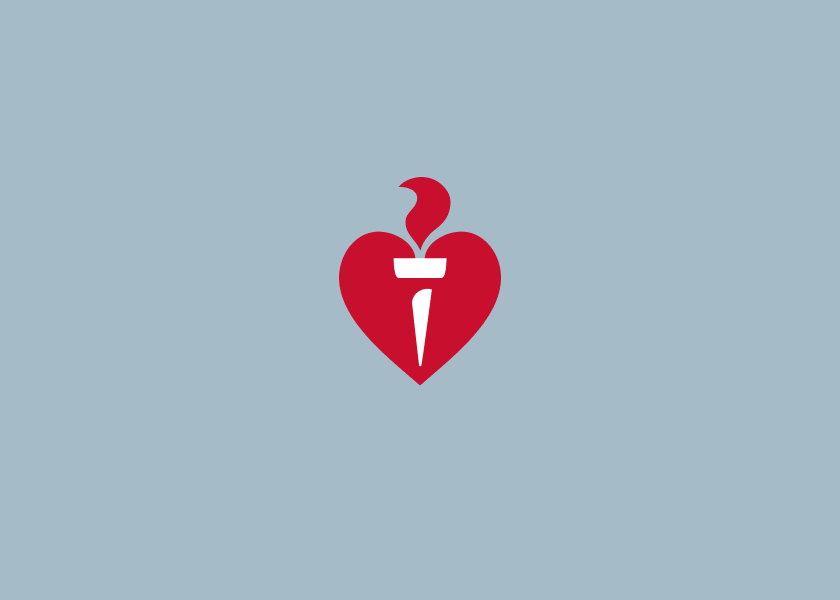
Let’s chew the fat about cholesterol: your top five questions answered
Blog: 15 February 2023
It’s waxy, fatty, and often unappreciated. Nope, it’s not that unwanted scented candle you got for Valentine’s Day. We’re talking about cholesterol.
You might’ve heard there is ‘good’ cholesterol and ‘bad’ cholesterol. Our bodies need some cholesterol to help build cells, hormones and vitamin D. But high levels of the bad kind can clog arteries and increase the risk of a heart attack or stroke. You can read more about the different types of cholesterol here.
Less than one in 10 of us know that high cholesterol, which can be detected with a blood test, is a risk factor for heart disease. At the Heart Foundation, we aim to change that. Here, we start by answering your top five questions.
1. My mum/dad has high cholesterol. Does that mean I’ll have high cholesterol too?
Having a family history can mean different things to different people. For many of us, it can mean a parent or grandparent has high cholesterol, which isn’t all that surprising given cholesterol levels naturally increase as we age. Your family member might have high cholesterol due to their lifestyle rather than their genes. The good news? Things like more exercise and having a heart-healthy diet all have an impact on cholesterol levels.
In some families though, several people might be diagnosed with high cholesterol or heart disease at a young age. This type of pattern can be caused by a genetic condition called ‘familial hypercholesterolaemia’ (FH). It affects around one in 250 people.
FH is present at birth and is passed down through families. People with FH can’t break down bad cholesterol, meaning the levels build up in the blood and can increase the risk of a heart attack or stroke. If you think you might have FH, it’s best to speak to your doctor as soon as possible to investigate further.
2. My doctor said I might need to start a cholesterol-lowering medicine. I’m a bit worried about it, what should I do?
The most common types of cholesterol-lowering medicines are called statins. Did you know that statins were the most prescribed medicine in Australia last year, with over 25 million prescriptions?
It’s normal to have some concerns about starting a new medicine, and you might have questions for your doctor or pharmacist. Do I really need this medicine? What are the risks? Are there simpler, safer options? What happens if I don’t take the medicine?
Even if you feel completely well, it’s important to take any medicines prescribed by your doctor. There’s a reason why high cholesterol is often called the ‘silent killer’ – because people usually don’t have any symptoms!
Remember, all medicines can have side effects. Side effects of statins can include dizziness, disturbed sleep, and feeling nauseous. Most people don’t get side effects though. If they do, they are usually pretty mild and go away after a few weeks.
Some people worry that statins might cause muscle aches, cramps, weakness or tingling in their legs. These are rare side effects and are generally mild. Out of 100 people taking a placebo (sugar pill), around five will report muscle pains. Out of 100 people taking a statin, an extra five extra people will have muscle pain (10 out of 100).
Statins are life-saving medicines. For people who have had a heart attack, taking a statin can reduce the risk of another heart attack by around 20%.
3. What cholesterol levels should I be aiming for?
Sorry folks, but there isn’t a one-size-fits-all magic number when it comes to cholesterol. The latest science says that in general, the lower your bad cholesterol and the higher your good cholesterol, the better.
The other thing is that doctors don’t treat cholesterol on its own. Instead, they treat a person’s overall risk of a heart attack or stroke based on a range of risk factors, including cholesterol, blood pressure, diabetes and smoking status. Your doctor will discuss your specific targets with you, which will be based on your overall risk level.
All this (and more!) happens as part of a Heart Health Check.
4. Does cholesterol affect women and men in the same way?
We know that heart disease affects women differently to men. Women can have women-specific risk factors, including some related to pregnancy. There are also differences between women and men when it comes to cholesterol.
The risk of high cholesterol increases with age, and from around age 55, women are more likely to have high cholesterol than men. It’s thought this is due to the falling levels of oestrogen (the female sex hormone) around the time of menopause. This is why we encourage all women to have a conversation about cholesterol with their GP.
5. Unscramble this for me – what about eggs and cholesterol?
Based on the Heart Foundation’s egg-citing research, most people can enjoy as many eggs as they like every week. In fact, they’re packed full of protein, vitamins and minerals, just like other heart-healthy foods such as seafood, chicken, legumes (chickpeas and lentils), nuts and seeds.
You said ‘most’ people though.
Okay, eagle eyes. We recommend that people with type 2 diabetes, heart disease or high levels of bad cholesterol should stick to no more than seven eggs per week. You can still enjoy your Sunday morning googs, maybe just drop the bacon rashers.
Remember, small changes to your diet can make a big difference when it comes to your cholesterol. Why not try one of our delicious recipes or speaking with an Accredited Practising Dietitian for specific advice?
We recommend that everyone from 45 years of age should get their cholesterol checked as part of a Heart Health Check. If you have a family history of high cholesterol or heart disease from an early age, see your GP for a cholesterol check sooner. For Aboriginal and/or Torres Strait Islander Peoples, cholesterol checks should start from age 18.
You can also check out our new animation below, which explains how cholesterol affects the heart, and what people can do to manage their levels.
You might also be interested in...

Fats, oils and heart health
While eating fatty food may sound like a bad thing, some fats can play an essential role in keeping your heart healthy.

Is salt bad for your heart?
Most Australians are eating more than the recommended amounts and this can cause health problems.

An investigation into how a sugar-clearing protein affects heart disease
An investigation into how a sugar-clearing protein affects heart disease
Last updated15 February 2022